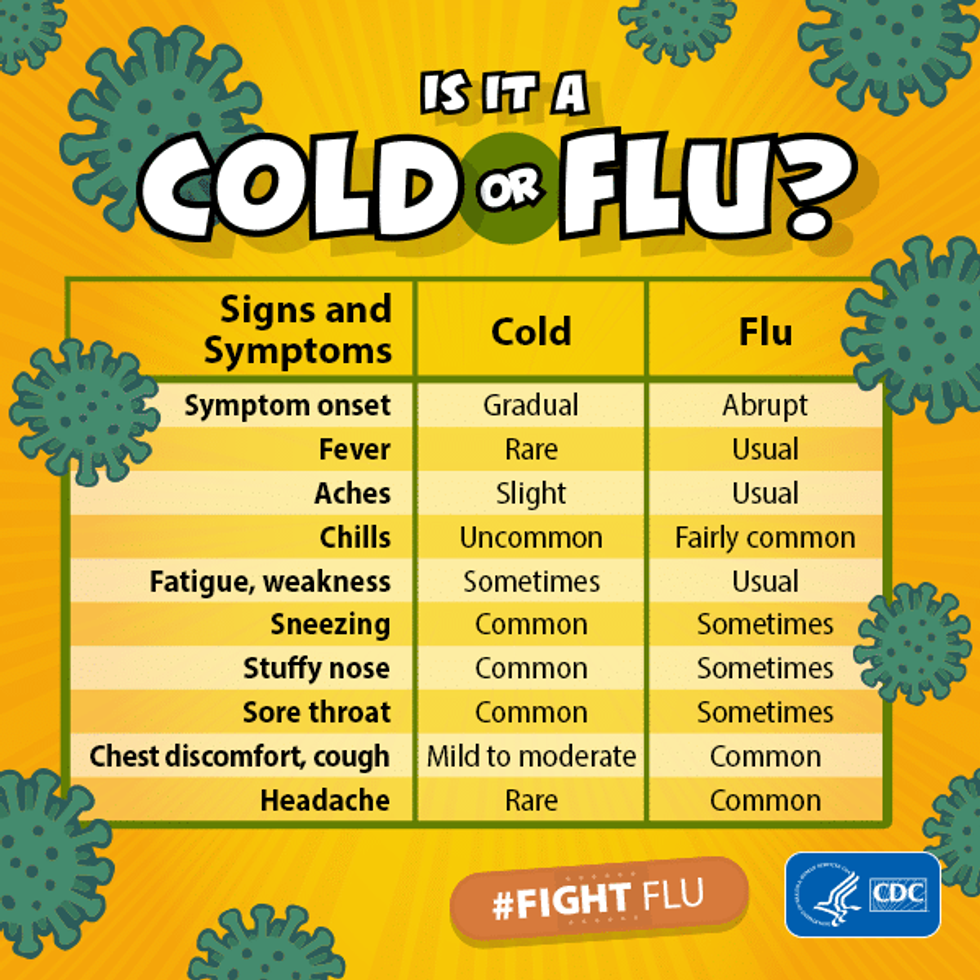How can you tell if you have a cold or the flu? And what should you do?
It's difficult because the symptoms of a cold and the symptoms of the flu are often similar, such as cough, runny nose and sore throat. However, there are differences.
Here are some differences:
- Cold symptoms usually come on slowly, with mild symptoms like a cough, runny nose and sore throat.
- People with a cold can usually function with their symptoms—but it's better to stay home if you're sneezing and coughing to avoid spreading germs.
- The flu usually causes a fever, headaches, chills and aching muscles and joints. If you have the flu, it's important to stay home to avoid spreading the virus. Like a cold, flu can last a week or two. The flu may be contagious starting a day before symptoms appear until a week after becoming sick—possibly longer in children.
- The flu typically hits people like a fast-moving train with a rapid onset of symptoms like profound fatigue, where just getting out of bed is an ordeal.
- The flu may cause nausea and vomiting, especially in children, but those symptoms do not necessarily indicate flu.
What to do?
- First of all, it's not too late to get your flu shot.
- Always listen to your body. If you're experiencing severe symptoms, contact your health care provider.
- For the very young, the very old and pregnant women, the flu can cause severe complications like pneumonia. It can even be fatal. Read more about pregnancy and the flu.
- Wipe down potentially germy surfaces like grocery cart handles, airplane trays and the backs of airplane seats behind the trays.
- Prevent the spread of colds and the flu by washing your hands and using tissues for coughs and sneezes.
- Keep your immune system healthy all year round and especially this time of year. That means plenty of sleep; reducing or eliminating alcohol, smoking or vaping; and eating nutritious meals.
- If you don't feel well for any reason, make sure you stay hydrated.
- Drink honey and lemon tea and water.
- Eat juicy melons, grapes and other foods with high water content.
- Eat good old-fashioned chicken soup and other soups such as hot-and-sour soup and wonton soup.
- For sore throats, gargle with warm saltwater. The salt helps clear the mucus film coating the throat and helps your immune system fight the microbes causing your symptoms.
- Rest, rest, rest and more rest. Did I mention rest?
- If you want to try supplements, these may boost your immune system:
- Tumeric
- Zinc lozenges and throat spray
This blog originally appeared on Nurse Barb. Barb Dehn is a women's health nurse practitioner, award-winning author and nationally recognized health expert. She practices with Women Physicians in the Silicon Valley of California.








